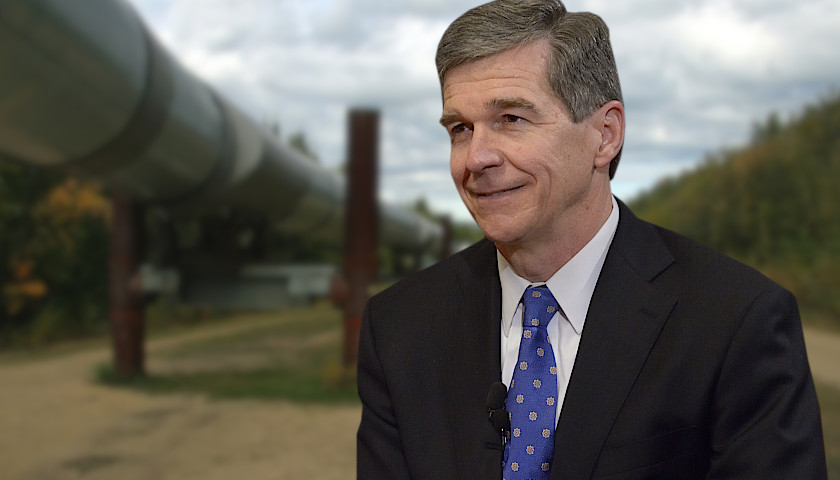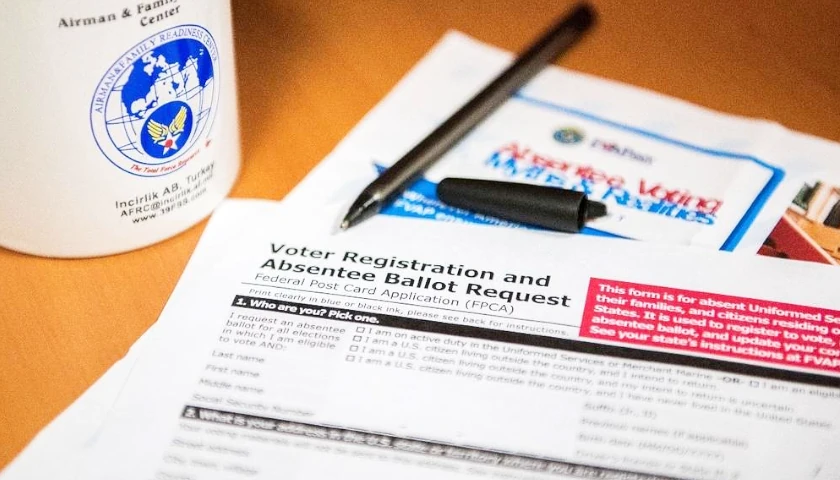Did North Carolina’s Gov. Roy Cooper (D-NC) delay signing a controversial fund document tied to the Atlantic Coast Pipeline to force Duke Energy to cut a deal with the state’s solar industry?
A report by WBTV’s investigative reporter Nick Ochsner says that’s what it looks like.
Buried in the 19,000+ pages of documents dumped by @NC_Governor's office days before Christmas about the Atlantic Coast Pipeline or records that show Cooper held off signing the pipeline MOU until Duke Energy reached a deal to buy more solar power #ncpol https://t.co/wQ5lD4uH4Z
— Nick Ochsner (@NickOchsnerWBTV) January 14, 2019
This latest bombshell adds to the mounting questions from North Carolina lawmakers previously reported by Battleground State News.
Ochsner’s report points to text messages found in a massive public records dump by Cooper’s office:
“The decision by Cooper and senior staff to use the pipeline permit as leverage to force Duke into cutting a deal with the state’s solar industry is documented in text messages, emails and memos included in a 19,216-page document dump released by the administration days before Christmas.”
The WBTV report highlights that at the same time Cooper was working on the pipeline funding Memorandum of Understanding (MOU) that included Duke Energy, Duke was hammering out its own agreement to purchase power from solar farms across the state.
It appears from the text messages and other documents in the records dump by Cooper’s office that both the governor and his staff were closely tracking the Duke solar dealings.
A WBTV reporter asked Cooper about the pipeline MOU and the solar negotiations with Duke. Cooper denied the two were linked.
“All completely separate issues,” Cooper told WBTV. “This issue regarding the disagreement with the renewable industry and the utilities is one that was going on before that issue with the permit and is still going on today.”
Ochsner’s report says otherwise and a possible smoking gun is a memo outlining “ACP mitigation options” drafted by the North Carolina Department of Environmental Quality (DEQ).
The memo was forwarded on November 28, 2017, to Cooper’s Chief of Staff, Kristi Jones. One of the options included jacking up the amount of solar energy Duke had to purchase.
Further establishing the case that the MOU signing was delayed in order to squeeze Duke Energy on the solar issue were text messages between Cooper’s top adviser, Ken Eudy, and the governor’s Chief Counsel William McKinney.
A text message from Cooper’s General Counsel, Will McKinney, to two members of his staff on January 1, 2018, shows the pipeline MOU was scheduled to be signed the following day, on January 2, 2018.
But early on the morning of January 2, 2018, McKinney and Cooper’s Senior Adviser, Ken Eudy, exchanged texts regarding the status of the solar negotiations and whether Cooper should sign the pipeline MOU.
“Not sure we should sign ACP agreement unless solar deal works,” Eudy texted McKinney at 7:18 a.m. on January 2.
“Ok. Don’t disagree,” McKinney responded in part.
State Sen. Harry Brown (R-D6), co-chair of the Joint Legislative Commission on Governmental Operations Subcommittee on the Atlantic Coast Pipeline, said he plans to on “getting to the facts of this matter.”
“I am committed to getting to the facts of this matter as the subcommittee continues to exercise its oversight duty,” said Brown. “The independent investigators retained by the subcommittee have now begun their work to find the truth.”
– – –
A.P. Dillon is a reporter at Battleground State News.
Follow A.P. Dillon on Twitter. Email Tips to [email protected]





